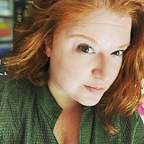Cults?
Full disclosure, y’all: I hate this word.
Despite being a wikipedia-certified expert on the topic, I hate this word a lot. And I have spent a lot of time on twitter yelling about why I hate it. I’ve also published about why I think this word is dangerous.
I did a whole thread on why “cult” is a problem and how else we can talk & think about these groups:
So why am I teaching a class about cults? Why does Northeastern even have a class about cults?
Well, you signed up for it, right? (Or you’re eavesdropping because I posted about it on twitter, in which case, hi!) “Cult” is provocative — it makes people click headlines, buy books, and yeah, sign up for classes.
the word “cult” gets used to mark certain groups as legitimate targets of state surveillance and violence
“Cult” has also justified state surveillance, law enforcement violence, and many, many violations of Americans’ civil rights. And that’s the part we’re going to be talking about this semester: how the word “cult” gets used to mark certain groups as legitimate targets of state surveillance and violence, as too different to be included in America’s alleged promise of religious freedom.
We’re focusing explicitly on how the cult label has functioned to discourage, discipline, and punish Black religious innovation and resistance in the 20th century.
I won’t lie: we’re tackling a lot of heavy, challenging material in this class. But if you stick with it, you’ll have a much better sense of what “religion” is and how Americans use religion to shape, control, rethink, and reimagine the world around them.
